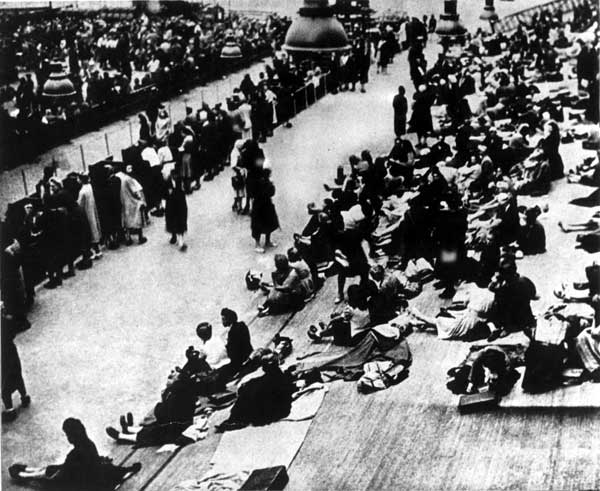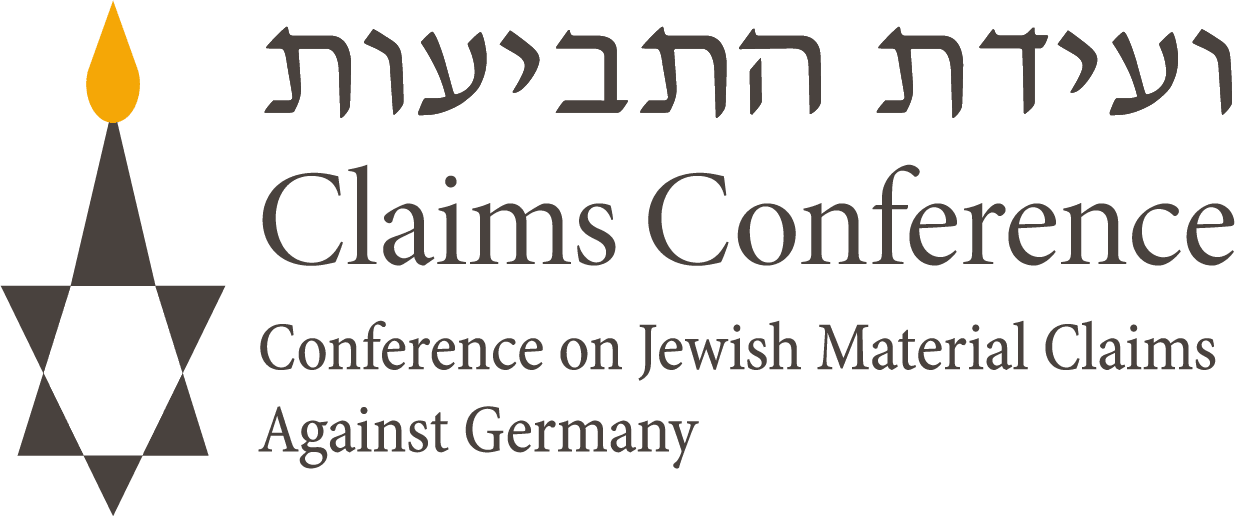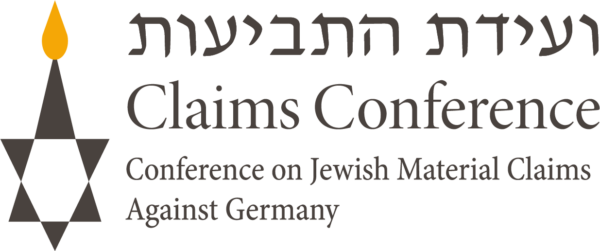25% Of Millennials Have Not Heard – Or Don’t Think They Have Heard – About The Holocaust
Claims Conference President Julius Berman has announced the release of a comprehensive Holocaust Knowledge and Awareness Survey of adults in France highlighting both the desire and the need for Holocaust education.
Released just days ahead of the 75th anniversary of the liberation of Auschwitz, this survey represents the fourth in a series of global surveys conducted by the Claims Conference to determine the current status of Holocaust knowledge around the world. Similar to previous surveys conducted in the United States, Canada and Austria, outcomes from the France study indicate alarming gaps in knowledge of historical facts about the Holocaust.
“Once again, we are seeing a significant lapse in understanding about the Holocaust, a history that is critically important,” Berman said of the France survey. “Our current education is not ample; it is failing us and the disturbing trend of Holocaust ignorance we are seeing globally demands increased education.”

The critical gaps exposed by the France study echo findings in previous surveys, with a majority of total French respondents (57 percent) not knowing that six million Jews were killed during the Holocaust. That number jumps significantly to 69 percent among Millennial and Gen Z respondents.
Matthew Bronfman, Claims Conference Task Force Chair for the Holocaust Knowledge and Awareness Survey, commented, “It is devastating to learn that younger generations do not understand the impact of the Holocaust. It was an attempted extermination of an entire people. Without knowledge, how can we ensure that prejudice and unchecked hatred are confronted?”
To that end, the France study indicates that more than half of those polled (52 percent) believe that something like the Holocaust could happen again in Europe, an unsettling finding. Worth noting, 36 percent of French respondents feel that something like the Holocaust could happen in the United States, a sentiment that mirrors findings in the previously conducted Austria survey which indicated 47 percent felt that something like the Holocaust could happen in the United States.
Similar to the Austria survey, France survey respondents revealed a conflict about their country’s Holocaust legacy. An overwhelming number of French respondents (58 percent) believe that France was both a victim and a perpetrator of the Holocaust.
There is a clear age gap when it comes to awareness of France’s Holocaust history, including events related to the Vel d’Hiv’ Roundup – with just 56 percent of Millennials and Gen Z aware of the historical mass arrest compared to 74 percent of French respondents overall. Also shocking is the level of knowledge about the Drancy internment camp, located in a suburb of Paris, with a mere two percent of all French respondents knowing about the camp.

On an encouraging note, 82 percent of respondents believe it is important to continue teaching about the Holocaust in part so that it doesn’t happen again. Further, 79 percent of French respondents indicate that all students should learn about the Holocaust in school, while 75 percent believe it should be compulsory in school. The desire in France for Holocaust education mirrors the findings in the previous U.S., Canada and Austria studies, indicating a consensus, in those countries, for the need for Holocaust education.
Robert Ejnes, Executive Director, of the Representative Council of French Jewish Institutions (CRIF) stated, “This study shows remarkable information that needs to be taken with attention. Much has been done in France for the education of the Shoah, but we all know that education has to be repeated again and again and adapted to speak to each generation. We therefore stress the importance of an always- adjusted education and the necessity of the dedication of every actor to work together to obtain sustainable results in our society.”
Greg Schneider, Claims Conference Executive Vice President remarked, “As we mark the 75th anniversary of the liberation of Auschwitz, it is distressing to see a waning level of knowledge about the Holocaust. It is rare to find anything that we can all agree on globally, but this agreement on the need for Holocaust education must be our call to action.
(Note: *The term ”Shoah” is used in place of “Holocaust” in France)
Additional findings from the survey include:
Number of Jews Murdered
30% of French respondents overall, and 44% of Millennials and Gen Z, believe two million or fewer Jews were killed during the Holocaust.
Across the four countries surveyed (United States, Canada, Austria and France) more than half of respondents did not know that six million Jews were killed in the Holocaust – with France having the highest percentage of people unaware that six million Jews were murdered.
Camps and Ghettos
While 66% are familiar with Auschwitz-Birkenau, only 19% of French respondents are familiar with the infamous Dachau concentration camp, while awareness of Buchenwald (10%), Treblinka (6%), Sobibor (5%), and Bergen-Belsen (4%) is incredibly low.
France’s Holocaust Legacy and Nazism
58% believe France was both a victim and a perpetrator of the Holocaust, despite 74% saying that the Vichy Regime actively collaborated with the Nazis during the Holocaust.
45% of Millennials are unaware of the French government69% of French respondents believe antisemitism is either MORE widespread (35%) in France or just as widespread (34%) as it was 10 years ago. Just 18 percent say antisemitism is less widespread than it was 10 years ago.’s collaboration with the Nazi regime during the Holocaust.
Almost one-third of French respondents (30%) say there are a great deal or many neo-Nazis in France today. A solid plurality (44%) say there are a few. By comparison, just over 4-in-10 French respondents (43%) believe that there are a great deal/many neo-Nazis in the United States today.
59% of French respondents agree that fewer people seem to care about the Holocaust than they used to. Only 18 percent believe that people still talk too much about what happened during the Holocaust.
45% of Millennials are unaware of the French government’s collaboration with the Nazi regime during the Holocaust.
Twice as many Millennials (20%) than all French respondents (10 percent) feel it is acceptable for an individual to hold antisemitic views.
Holocaust Education
- 25% of Millennials are unsure if they have ever heard of – or have not heard of – the Holocaust, compared to 16 percent of all French respondents.
- 79% of French respondents say that all students should learn about the Holocaust in school, and 75 percent believe Holocaust education should be compulsory in school. Additionally, 82 percent of respondents say it is important to continue to teach about the Holocaust, in part, so it doesn’t happen again.
- Approximately 4-in-10 respondents (41%) say that the current lessons about the Holocaust could be improved.
- Nearly two-thirds of Millennials and Gen Z (64%) first learned about the Holocaust in school, compared to 46 percent of all French adults surveyed.
- 64% of all French respondents cite “Anne Frank: Diary of a Young Girl” as a point of first learning about the Holocaust, but only 20 percent of respondents know that the Holocaust took place in the Netherlands, where Anne Frank was hidden while keeping her diary, indicating a lack of context in current Holocaust education.
Survey Taskforce
A survey task force, led by Claims Conference Board member Matthew Bronfman, consisted of Holocaust survivors, as well as representatives from museums, educational institutions, and leading nonprofits in the field of Holocaust education, including the following: Yad Vashem; the United States Holocaust Memorial Museum; Fondation pour la Mémoire de la Shoah; Representative Council of Jewish Institutions in France (CRIF), the Claims Conference; and George Washington University.
Survey Methodology and Sample
The Holocaust Knowledge and Awareness Study was commissioned by the Claims Conference. Data was collected in French and analyzed by Schoen Consulting, with a representative sample of 1,100 French adults via landline, cell phone, and online interviews. Respondents were selected at random and constituted a demographically representative sample of the adult population in France.
Topline Results:
Topline Results: France
Topline Results: French Millenials & Adults
Topline Results: US/Canada/Austria/France side-by-side
Topline Results: (French)


